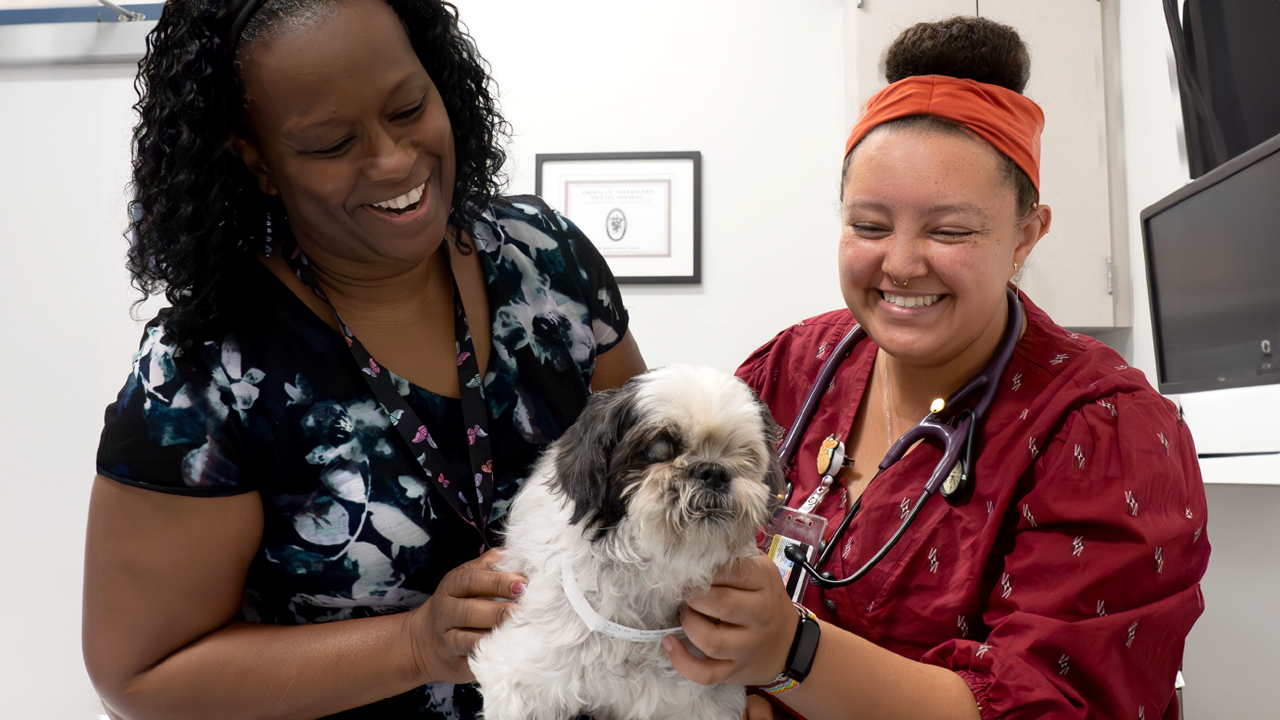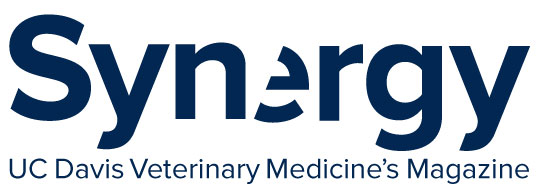
Experience of a Black DVM
During a lunch talk (watch the video below) hosted by the UC Davis Chapter of Veterinarians as One Inclusive Community for Empowerment (VOICE) earlier this year, Dr. Gina Davis B.S. '95, DVM '97 shared her journey as an African American woman navigating the veterinary profession. She guided the talk's attendees through her career journey, beginning with her undergraduate studies and veterinary school at UC Davis, followed by her work in private practice, and eventually returning to the university.
Upon earning her DVM, she joined a veterinary practice in Los Angeles, where she recalls her surprise at the diversity within the practice, expressing, “wait a minute, why are all of these people of color in veterinary medicine?” This experience challenged her preconceptions about the profession's demographics and highlighted the importance of inclusivity.
I’m at a place and age in my career where I’m not going to be silent to keep everybody else comfortable. I’m going to speak my story. I’m going to do my part.”
When her career took her to Seattle, Davis found herself in a different racial landscape, often feeling like the sole person of color. Despite accolades for her veterinary skills, she encountered prejudice, including clients requesting not to be seen by her based on her race. These experiences left her grappling with frustration and served as stark reminders of the ongoing racial biases in society.
After falling in love with behavior medicine, she returned to UC Davis to complete a residency in the subject and now serves as a junior faculty member. Recounting a particularly poignant consultation at the veterinary hospital with a client who expressed racist views, Davis shared that she took a stand and refused to engage with the client. Afterward, she reflected on the incident with students and colleagues and emphasized the importance of engaging in difficult conversations and advocating for change.
“We all talked about it, and it's a learning experience and such, but it was just another example of the difficulty that we have and the choices that we have to make,” she said. “I’m at a place and age in my career where I'm not going to be silent to keep everybody else comfortable. I’m going to speak my story. I’m going to do my part.“
Despite her experiences, Davis is optimistic about the future of diversity in veterinary medicine. Addressing the students in the room, she said, “I am so impressed with your generation of students and humans. You guys are amazing. You are advocates for yourselves and for each other. You speak your mind. Sometimes you get criticism—not sometimes—you often get criticism for it. But hold tight because it matters. Don't let anyone silence you.”
Events such as the George Floyd protests and the COVID-19 pandemic compelled Davis to confront issues of race and discrimination more directly. As a junior faculty member, she’s most excited about having a seat at the table and the opportunity to weigh in on important topics. She is committed to contributing to these discussions and promoting inclusivity in veterinary education and practice.
Despite her experiences, Davis is optimistic about the future of diversity in veterinary medicine.
I am so impressed with your generation of students and humans ... You are advocates for yourselves and for each other.”
